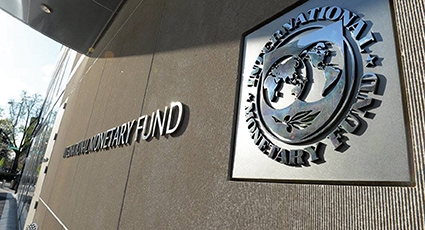IMF Releases Latest Report on Georgia’s Economy
On June 19, the Executive Board of the International Monetary Fund (IMF) released its findings following the Fourth Review of Georgia’s economic reform program, which is supported by a three-year extended arrangement under the IMF’s Extended Fund Facility (EFF).
There were three major findings of the report, which was, overall, largely positive with an emphasis on the role of government reforms, particularly in education, to continue moving the economy forward. First, Georgia’s economic performance remains robust with resilient growth, inflation under control, and reduced external vulnerabilities. Second, continued implementation of the authorities’ reform agenda remains vital to ensure that growth is sustainable and inclusive. Third, comprehensive education reform needs to boost education quality and reduce skills mismatches in the labor force.
The end of the review period triggers the release of special drawing rights (SDR) from the IMF for Georgia. The SDR is an international reserve asset developed by the IMF to supplement member countries’ official reserves. The value of the SDR is based on a basket of five currencies: the US dollar, the Euro, the Chinese Renminbi, the Japanese Yen, and the British Pound Sterling. Now, Georgia has access to SDR 30 million (about $41.4 million), bringing total disbursements under the EFF to SDR 150 million (about $207.2 million). The current arrangement for SDR 210.4 million was approved by the IMF Executive Board on April 12, 2017.
Following the Executive Board discussion on June 19, David Lipton, First Deputy Managing Director and Acting Chair, told board members: “Georgia’s economic performance remains robust with resilient growth, inflation under control, and reduced external vulnerabilities. Although the outlook is favorable, the authorities need to be prepared to address any negative spillovers from external developments and persevere with structural reforms to promote higher and more inclusive growth.”
He also noted that “The fiscal deficit is projected to remain relatively stable in 2019 and over the medium term reflecting the authorities’ commitment to fiscal sustainability. Higher spending on public education will be offset with slower growth in infrastructure investment. Regarding education spending, salary increases can only be effective if accompanied by other steps to boost education quality, which requires further work on a comprehensive education reform.”
Lipton commented on monetary policy, complementing the National Bank of Georgia for its focus on price stability. “As recent increases in inflation are driven by temporary factors, a neutral monetary policy stance remains appropriate. Tighter lending standards have slowed credit growth as expected, making credit growth more sustainable. The inflation targeting framework, combined with exchange rate flexibility, and interventions that help build reserves continue to serve Georgia well.”
The reform agenda of the Georgian government is critical to growth, said Lipton, praising the fact that “authorities are advancing education reform to reduce skills mismatches in the labor force. A new insolvency law, together with making the pension agency fully operational and reforms to promote a transparent and independent judiciary, would help mobilize investment. The authorities’ energy market reforms could improve market competition and energy efficiency.”
Lipton confirmed the IMF’s commitment to supporting Georgia, saying “Sound policies and further reforms under the IMF program will help preserve the gains made, strengthen economic resilience, and foster stronger and more inclusive growth.”
By Samantha Guthrie
Source: IMF











